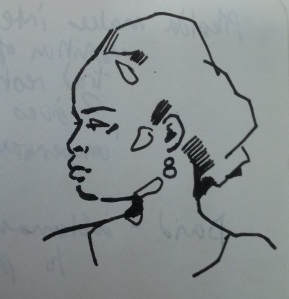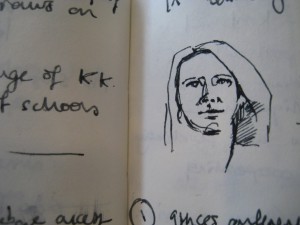The Sudan Studies associations of the US and UK – who both accept international members – held their international conference this week in Bonn, Germany, which for the first time dealt with two countries instead of one.
Many conferences and events so far have struggled with this change and the resulting re-balancing of the debate. Douglas Johnson called in his keynote for a clear integration of wider Africanist and other literature in Sudan studies, which has a sometimes deserved reputation for separatism and isolation. It’s possible that – despite the likelihood that South Sudan will become the field of Africanists and Sudan will be integrated more into Middle East and Northern African literature, and therefore become more intellectually separated – this wider integration will help to encourage a sense of the Sudans in a broader intellectual debate than previously.
The conference incorporated every aspect of a traditional Sudanist meeting: there were many excellent papers and a few off the wall ones; some new and exciting students; historians being asked for comments on contemporary problems; stray politicians and diplomats making the usual statements; and comments (with personalised histories and statements) instead of questions.
The conference also reflected the stresses of the last eight months: as was noted, many panels were concerned with development, conflict, “identity”, international relations and “nationbuilding”. History was thin on the ground in comparison to problematizing the present and debating the future. Events are moving fast in both Sudans, and there was a sense of impatience, concern, hope and a demand for plans, even among the old guard.
Footnote: I also met a few lovely people who apparently read this blog: very exciting! I will try to be more diligent in my posting…
Normal
0
false
false
false
EN-GB
X-NONE
X-NONE
/* Style Definitions */
table.MsoNormalTable
{mso-style-name:”Table Normal”;
mso-tstyle-rowband-size:0;
mso-tstyle-colband-size:0;
mso-style-noshow:yes;
mso-style-priority:99;
mso-style-qformat:yes;
mso-style-parent:””;
mso-padding-alt:0cm 5.4pt 0cm 5.4pt;
mso-para-margin:0cm;
mso-para-margin-bottom:.0001pt;
line-height:115%;
mso-pagination:widow-orphan;
font-size:11.0pt;
font-family:”Calibri”,”sans-serif”;
mso-ascii-font-family:Calibri;
mso-ascii-theme-font:minor-latin;
mso-fareast-font-family:”Times New Roman”;
mso-fareast-theme-font:minor-fareast;
mso-hansi-font-family:Calibri;
mso-hansi-theme-font:minor-latin;
mso-bidi-font-family:”Times New Roman”;
mso-bidi-theme-font:minor-bidi;}
The Sudan Studies associations of the US and UK – who both accept international members – held their international conference this week in Bonn, Germany, which for the first time dealt with two countries instead of one.
Many conferences and events so far have struggled with this change and the resulting re-balancing of the debate. Douglas Johnson called in his keynote for a clear integration of wider Africanist and other literature in Sudan studies, which has a sometimes deserved reputation for separatism and isolation. It’s possible that – despite the likelihood that South Sudan will become the field of Africanists and Sudan will be integrated more into Middle East and Northern African literature, and therefore become more intellectually separated – this wider integration will help to encourage a sense of the Sudans in a broader intellectual debate than previously.
The conference incorporated every aspect of a traditional Sudanist meeting: there were many excellent papers and a few off the wall ones; some new and exciting students; historians being asked for comments on contemporary problems; stray politicians and diplomats making the usual statements; and comments (with personalised histories and statements) instead of questions.
The conference also reflected the stresses of the last eight months: as was noted, many panels were concerned with development, conflict, “identity”, international relations and “nationbuilding”. History was thin on the ground in comparison to problematizing the present and debating the future. Events are moving fast in both Sudans, and there was a sense of impatience, concern, hope and a demand for plans, even among the old guard.
Footnote: I also met a few lovely people who apparently read this blog: very exciting! I will try to be more diligent in my posting…






